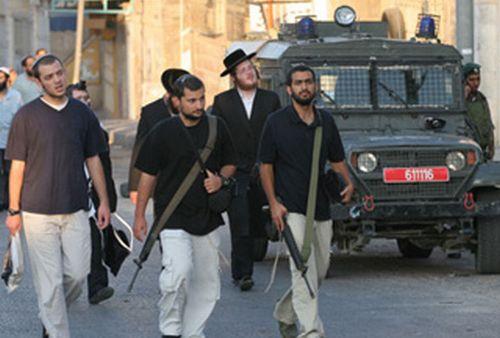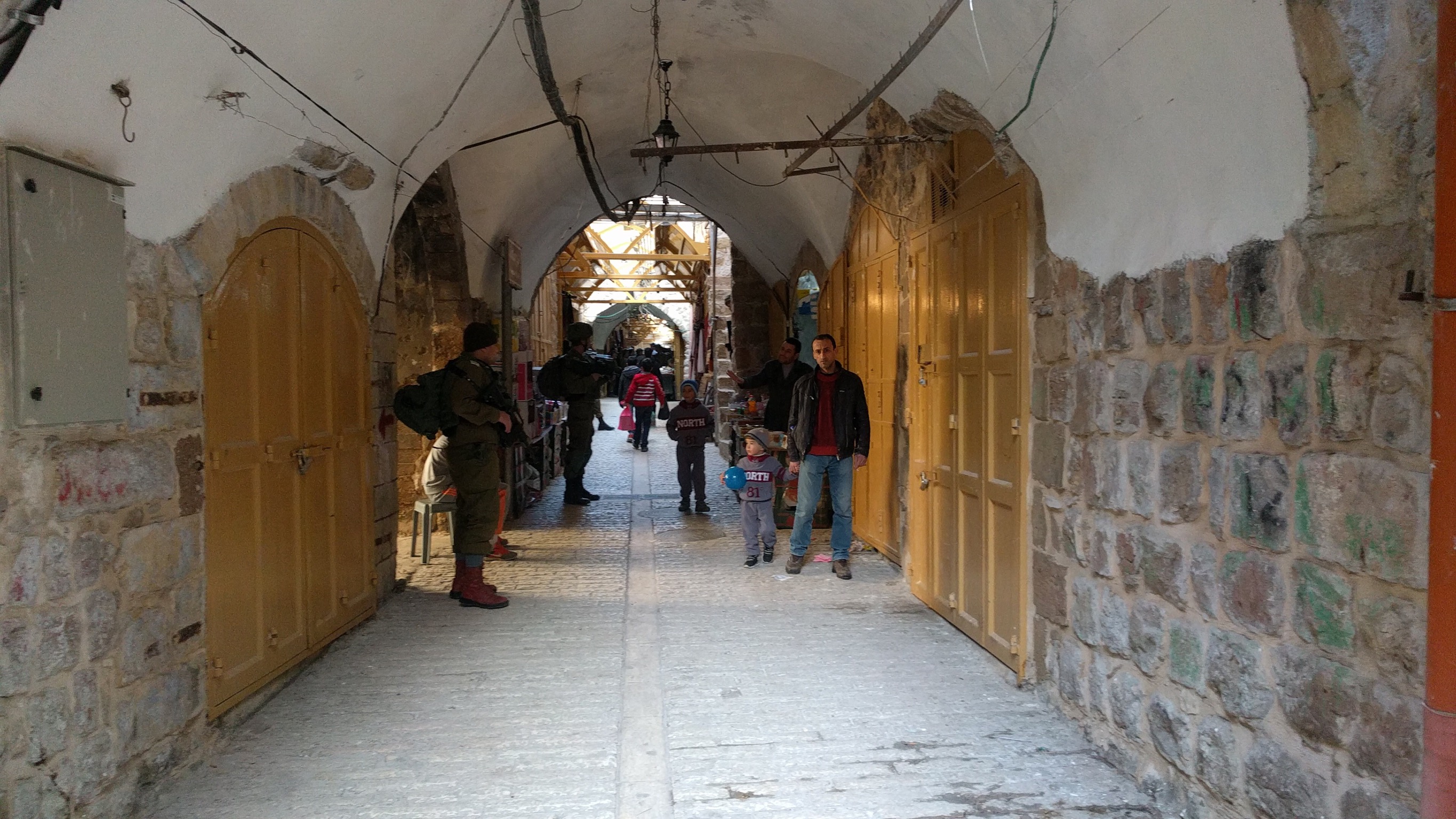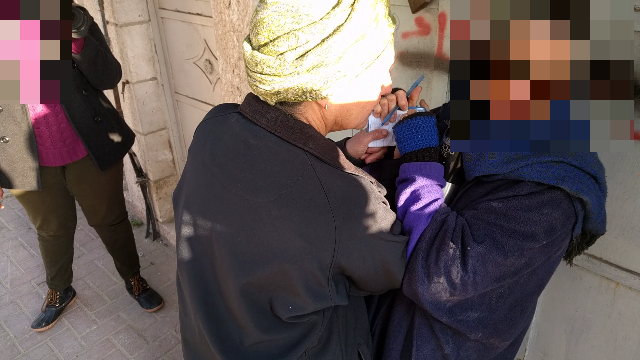Tag: Settler violence
-
Settlers’ continue to terrorize Al-Khalil
17th February 2019 | International Solidarity Movement, Al-Khalil team | Hebron, occupied Palestine At the end of January the occupation barred international ‘observer’ groups from Al-Khalil (Hebron), who were stationed throughout the city for more than 20 years, following the massacre of 29 Palestinians inside Ibrahim mosque in 1994 by a fanatical Israeli terrorist.…
-
Anat Cohen steals international observer’s notebook
February 17, 2019 | International Solidarity Movement, Al-Khalil team | Al-Khalil, occupied Palestine Anat Cohen (ענת כהן), daughter of the convicted Israeli terrorist Moshe Zar, attacked another international who was observing schoolchildren on their commute to the Qurtuba school this morning. The International was an elderly woman who was keeping tally in a notebook of…



